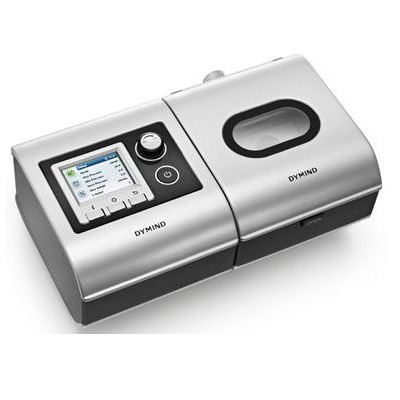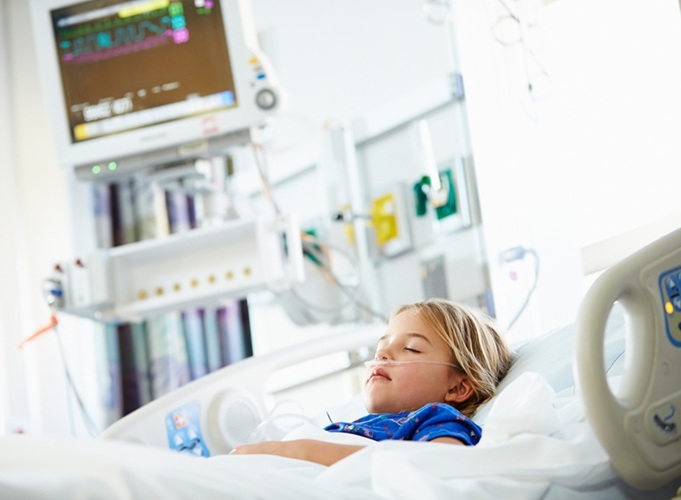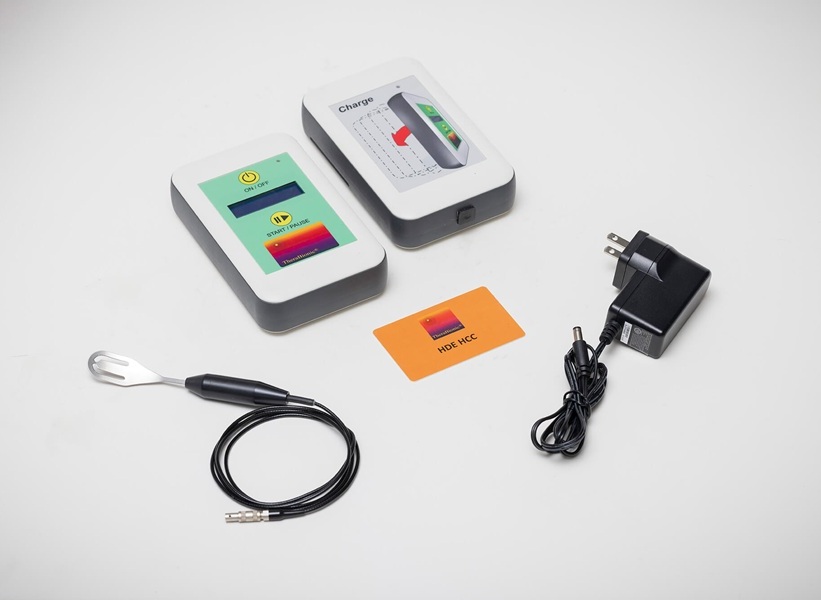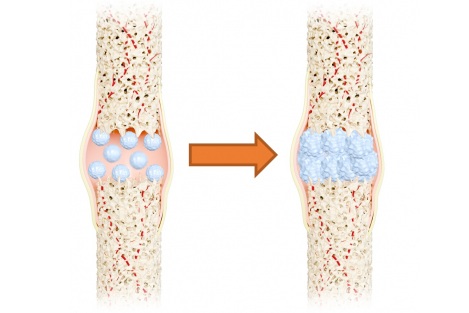Transasia Launches COVID-19 IgG Antibody Kits with 98% Accuracy and at 20% Cost of RT-PCR Tests
|
By HospiMedica International staff writers Posted on 06 Jul 2020 |
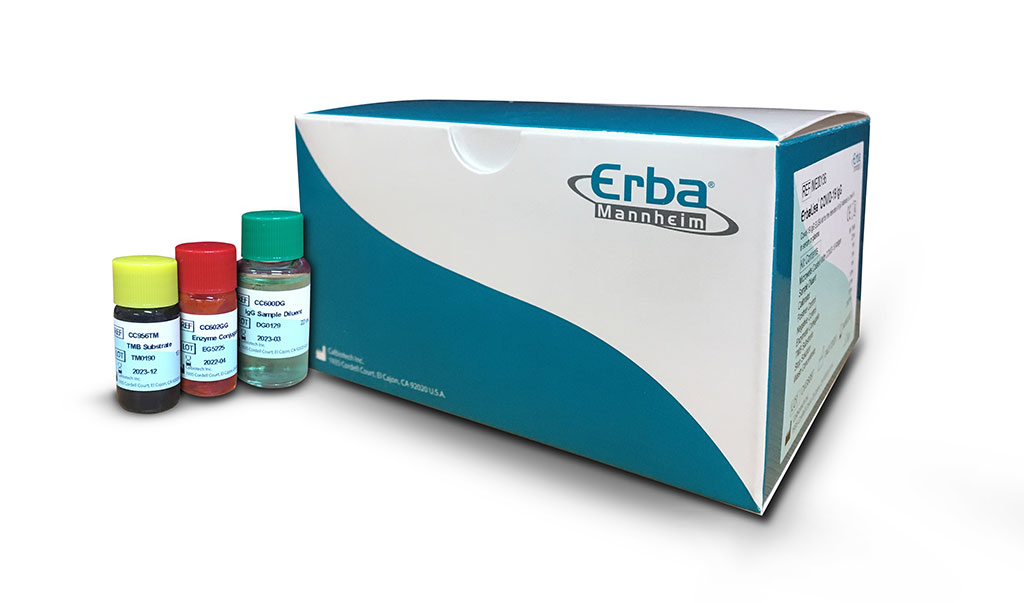
Image: ErbaLisa COVID-19 IgM ELISA kit (Photo courtesy of Erba Mannheim)
Transasia Bio-Medicals Ltd. (Mumbai, India) has announced wide availability of its recently launched ELISA antibody test kits through its pan-India network of over 50,000 diagnostic labs.
In its advisory dated June 23, the Indian Council of Medical Research (ICMR), the apex body in India for the formulation, coordination and promotion of biomedical research, allowed private laboratories and hospitals to conduct serological tests across the general population with a view to easing the country out of the three-month lockdown. The directive takes the authorized labs for COVID-19 testing from the current 500 to over 80,000 labs spread across the country. With the Indian government’s directive for sero-surveillance and identification of asymptomatic individuals, the states have been asked to step up their testing capacity and make testing available to all symptomatic patients. Several states in India such as Maharashtra, Delhi, Haryana, Uttar Pradesh and Jharkhand have ramped up their testing with mega door-to-door serological surveys, and with the new ICMR directive, more states are likely to follow suit. In an effort to ramp up testing capacity, the ICMR recently released a comprehensive list of categories of people who should be tested as part of the sero-survey, including high-risk or vulnerable populations such as healthcare workers, frontline workers, immune-compromised individuals, individuals in containment zones, security staff, prisoners) to know who has been infected in the past and has now recovered.
Several majorly affected countries in the world are already using Transasia’s ELISA antibody test kits for past two months. Validated by ICMR and NIV, Transasia’s US-developed ErbaLisa COVID-19 IgG ELISA kit has more than 90% sensitivity and specificity, and come at 20% the cost of RT-PCR tests.
“With the country slowly trying to emerge from the lockdown and resume functionality, there is a need to scale up testing by at least five times in the next three months. ICMR’s mantra of Test, Track and Treat is very relevant in India to flatten the curve. ELISA test is a promising tool for sero-surveillance and to know where the disease stands in the curve. It is with this thought that Antibody ELISA tests are being widely conducted in the US and Europe,” said Suresh Vazirani, Chairman and Managing Director, Transasia-Erba Group.
“Being a global IVD player, Transasia has been at the epicenter of managing this crisis in the US, Europe, Latin American and Far-East countries. Depending upon the level of sero-prevalence of infection, governments and policy makers can plan and implement for prevention and control of the disease, with periodic sero-surveys used to guide the policy makers,” added Vazirani.
“Most labs in India are already equipped with ELISA automation and technicians are well trained for conducting ELISA tests, thus making it the ‘most conducive environment’ for testing. Compared to RT-PCR, the gold standard of testing, ELISA costs 80% lesser and allows for volume testing in a short time. The approved Rapid Ag tests, on the other hand, have a sensitivity of 50%, making it less reliable and requiring re-testing of large populations,” said Ravi Kaushik, CEO, Transasia Bio-Medicals.
Related Links:
Transasia Bio-Medicals Ltd.
In its advisory dated June 23, the Indian Council of Medical Research (ICMR), the apex body in India for the formulation, coordination and promotion of biomedical research, allowed private laboratories and hospitals to conduct serological tests across the general population with a view to easing the country out of the three-month lockdown. The directive takes the authorized labs for COVID-19 testing from the current 500 to over 80,000 labs spread across the country. With the Indian government’s directive for sero-surveillance and identification of asymptomatic individuals, the states have been asked to step up their testing capacity and make testing available to all symptomatic patients. Several states in India such as Maharashtra, Delhi, Haryana, Uttar Pradesh and Jharkhand have ramped up their testing with mega door-to-door serological surveys, and with the new ICMR directive, more states are likely to follow suit. In an effort to ramp up testing capacity, the ICMR recently released a comprehensive list of categories of people who should be tested as part of the sero-survey, including high-risk or vulnerable populations such as healthcare workers, frontline workers, immune-compromised individuals, individuals in containment zones, security staff, prisoners) to know who has been infected in the past and has now recovered.
Several majorly affected countries in the world are already using Transasia’s ELISA antibody test kits for past two months. Validated by ICMR and NIV, Transasia’s US-developed ErbaLisa COVID-19 IgG ELISA kit has more than 90% sensitivity and specificity, and come at 20% the cost of RT-PCR tests.
“With the country slowly trying to emerge from the lockdown and resume functionality, there is a need to scale up testing by at least five times in the next three months. ICMR’s mantra of Test, Track and Treat is very relevant in India to flatten the curve. ELISA test is a promising tool for sero-surveillance and to know where the disease stands in the curve. It is with this thought that Antibody ELISA tests are being widely conducted in the US and Europe,” said Suresh Vazirani, Chairman and Managing Director, Transasia-Erba Group.
“Being a global IVD player, Transasia has been at the epicenter of managing this crisis in the US, Europe, Latin American and Far-East countries. Depending upon the level of sero-prevalence of infection, governments and policy makers can plan and implement for prevention and control of the disease, with periodic sero-surveys used to guide the policy makers,” added Vazirani.
“Most labs in India are already equipped with ELISA automation and technicians are well trained for conducting ELISA tests, thus making it the ‘most conducive environment’ for testing. Compared to RT-PCR, the gold standard of testing, ELISA costs 80% lesser and allows for volume testing in a short time. The approved Rapid Ag tests, on the other hand, have a sensitivity of 50%, making it less reliable and requiring re-testing of large populations,” said Ravi Kaushik, CEO, Transasia Bio-Medicals.
Related Links:
Transasia Bio-Medicals Ltd.
Latest COVID-19 News
- Low-Cost System Detects SARS-CoV-2 Virus in Hospital Air Using High-Tech Bubbles
- World's First Inhalable COVID-19 Vaccine Approved in China
- COVID-19 Vaccine Patch Fights SARS-CoV-2 Variants Better than Needles
- Blood Viscosity Testing Can Predict Risk of Death in Hospitalized COVID-19 Patients
- ‘Covid Computer’ Uses AI to Detect COVID-19 from Chest CT Scans
- MRI Lung-Imaging Technique Shows Cause of Long-COVID Symptoms
- Chest CT Scans of COVID-19 Patients Could Help Distinguish Between SARS-CoV-2 Variants
- Specialized MRI Detects Lung Abnormalities in Non-Hospitalized Long COVID Patients
- AI Algorithm Identifies Hospitalized Patients at Highest Risk of Dying From COVID-19
- Sweat Sensor Detects Key Biomarkers That Provide Early Warning of COVID-19 and Flu
- Study Assesses Impact of COVID-19 on Ventilation/Perfusion Scintigraphy
- CT Imaging Study Finds Vaccination Reduces Risk of COVID-19 Associated Pulmonary Embolism
- Third Day in Hospital a ‘Tipping Point’ in Severity of COVID-19 Pneumonia
- Longer Interval Between COVID-19 Vaccines Generates Up to Nine Times as Many Antibodies
- AI Model for Monitoring COVID-19 Predicts Mortality Within First 30 Days of Admission
- AI Predicts COVID Prognosis at Near-Expert Level Based Off CT Scans
Channels
Critical Care
view channel
Origami Robots to Deliver Medicine Less Invasively and More Effectively
Delivering medicine to ulcers or other internal sites often requires invasive procedures that can disrupt surrounding tissues and lengthen recovery times. Traditional magnetic actuators used in soft robotics... Read more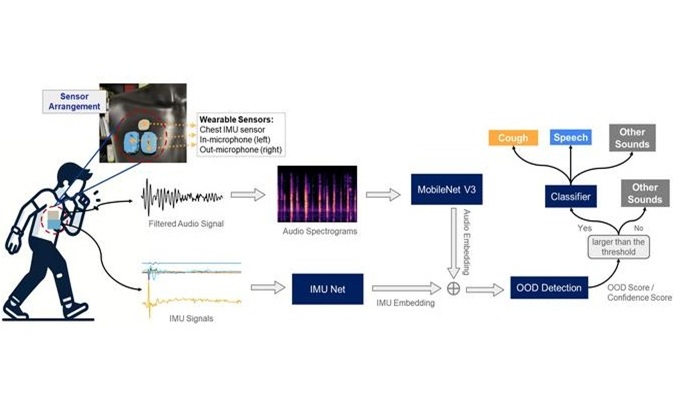
Improved Cough-Detection Technology Aids Health Monitoring
Coughing serves as an important biomarker for tracking a variety of conditions and can help monitor the progress of respiratory diseases or predict when someone’s asthma is being exacerbated.... Read moreSurgical Techniques
view channel
Novel Glue Prevents Complications After Breast Cancer Surgery
Seroma and prolonged lymphorrhea are among the most common complications following axillary lymphadenectomy in breast cancer patients. These postoperative issues can delay recovery and postpone the start... Read more
Breakthrough Brain Implant Enables Safer and More Precise Drug Delivery
Delivering medication directly to specific regions of the brain has long been a major challenge in treating neurological disorders. Current implants and infusion systems typically reach only one or two... Read morePatient Care
view channel
Revolutionary Automatic IV-Line Flushing Device to Enhance Infusion Care
More than 80% of in-hospital patients receive intravenous (IV) therapy. Every dose of IV medicine delivered in a small volume (<250 mL) infusion bag should be followed by subsequent flushing to ensure... Read more
VR Training Tool Combats Contamination of Portable Medical Equipment
Healthcare-associated infections (HAIs) impact one in every 31 patients, cause nearly 100,000 deaths each year, and cost USD 28.4 billion in direct medical expenses. Notably, up to 75% of these infections... Read more
Portable Biosensor Platform to Reduce Hospital-Acquired Infections
Approximately 4 million patients in the European Union acquire healthcare-associated infections (HAIs) or nosocomial infections each year, with around 37,000 deaths directly resulting from these infections,... Read moreFirst-Of-Its-Kind Portable Germicidal Light Technology Disinfects High-Touch Clinical Surfaces in Seconds
Reducing healthcare-acquired infections (HAIs) remains a pressing issue within global healthcare systems. In the United States alone, 1.7 million patients contract HAIs annually, leading to approximately... Read moreHealth IT
view channel
Printable Molecule-Selective Nanoparticles Enable Mass Production of Wearable Biosensors
The future of medicine is likely to focus on the personalization of healthcare—understanding exactly what an individual requires and delivering the appropriate combination of nutrients, metabolites, and... Read moreBusiness
view channel
Philips and Masimo Partner to Advance Patient Monitoring Measurement Technologies
Royal Philips (Amsterdam, Netherlands) and Masimo (Irvine, California, USA) have renewed their multi-year strategic collaboration, combining Philips’ expertise in patient monitoring with Masimo’s noninvasive... Read more
B. Braun Acquires Digital Microsurgery Company True Digital Surgery
The high-end microsurgery market in neurosurgery, spine, and ENT is undergoing a significant transformation. Traditional analog microscopes are giving way to digital exoscopes, which provide improved visualization,... Read more
CMEF 2025 to Promote Holistic and High-Quality Development of Medical and Health Industry
The 92nd China International Medical Equipment Fair (CMEF 2025) Autumn Exhibition is scheduled to be held from September 26 to 29 at the China Import and Export Fair Complex (Canton Fair Complex) in Guangzhou.... Read more





